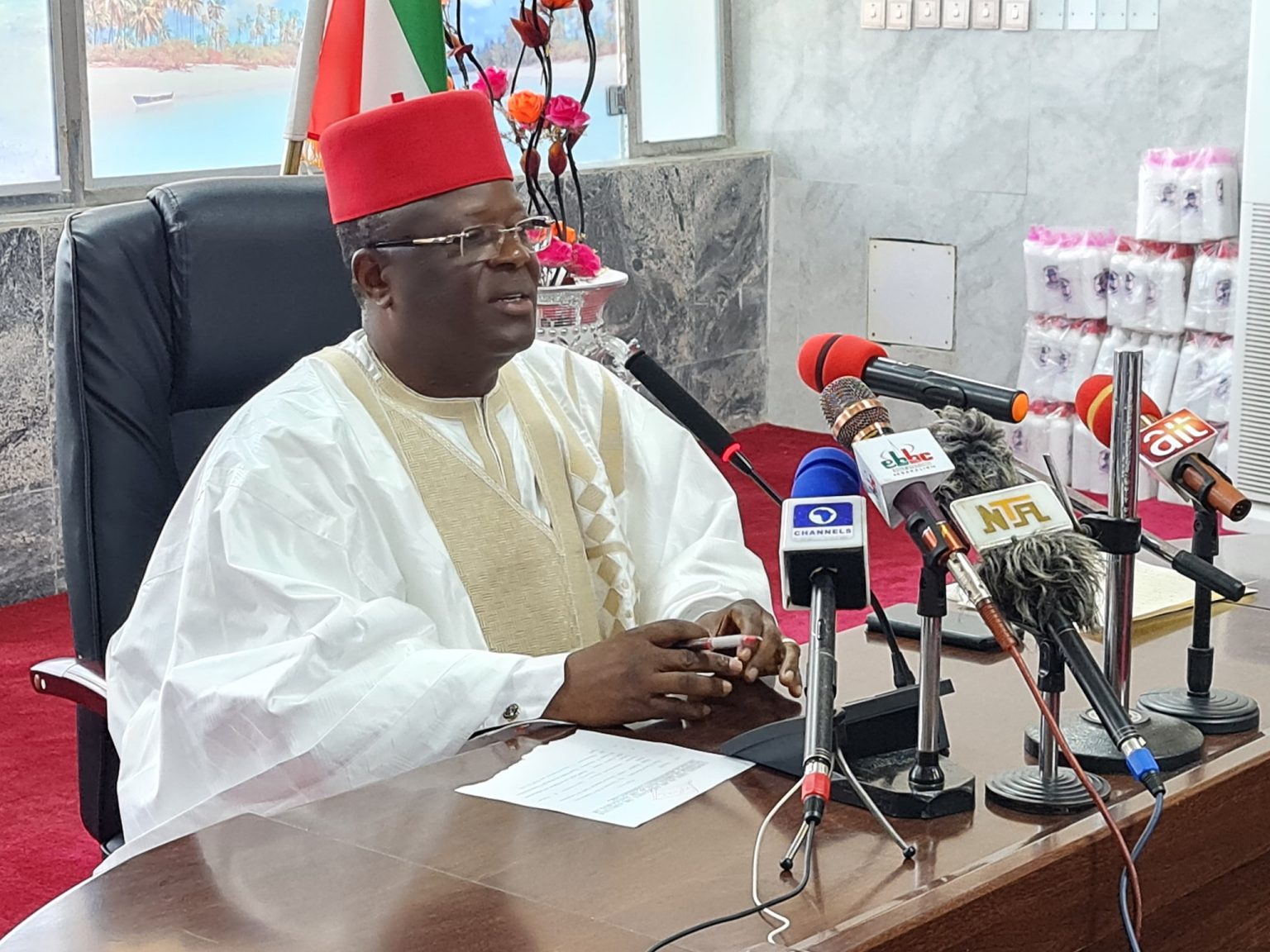Nigeria
Road construction using laterite is prohibited – Umahi

In an effort to increase the quality and durability of roads, David Umahi, minister of works, has banned the use of laterite as a base material in road building.
This directive was given at the inauguration of the committee in charge of overseeing the dualization of the Port Harcourt-Onne Port junction route in Rivers State and the reconstruction of the Benin-Warri dual carriageway.
Lere-Adams Blessing, the director of information, press, and public relations for the Ministry of Works, said in a statement on Friday that Mr. Umahi had emphasised that laterite has limitations in its ability to support loads, is prone to erosion, and weathers quickly, especially in areas with heavy rainfall.
These elements shorten the lifespan of roads, make maintenance difficult, and contribute to the deterioration of road surfaces over time.
“The roads between Benin and Warri are receiving very serious attention from us, and we are also conscious of the site conditions, including water conditions and the need for proper infrastructure maintenance,” he stated.
He emphasised that laterite is no longer a suitable base material and gave contractors the go-ahead to lay the foundation out in lumps, sharp sand, and stone before installing concrete or asphalt pavement.
Additionally, the minister underlined the significance of ongoing maintenance during the building phase.
He asked the recently established Road Taskforce Team to alert contractors to this development and reaffirmed the ministry’s commitment to fulfilling the former President Muhammadu Buhari’s order to upgrade Nigeria’s road network.
Read also: Umahi reveals the amount of money required to rebuild 260 highways in Nigeria
Mr. Umahi emphasised how the country’s road infrastructure has transformed trade, education, security, and power.
He went on to say that “Mr. President is committed to our road infrastructure improvement.” “Road infrastructure is one of the key factors for the revolution of our commerce, education, security, and power in this country,” he said.
In particular, he emphasised that contracts using asphalt pavement must remain stable and without variations. He also made it clear that the ministry would not ask the Federal Executive Council for additional funding because bitumen prices fluctuate, insisting that projects must stay within the N6 trillion budget allotted.
Mr. Umahi specified that mobilisation monies would only be given until contractors had deployed 50% of their equipment and staff to site in an effort to ensure contractors’ commitment to their projects.
In order to successfully complete projects, contractors must respect both their own and residents’ rights, he said in conclusion.
